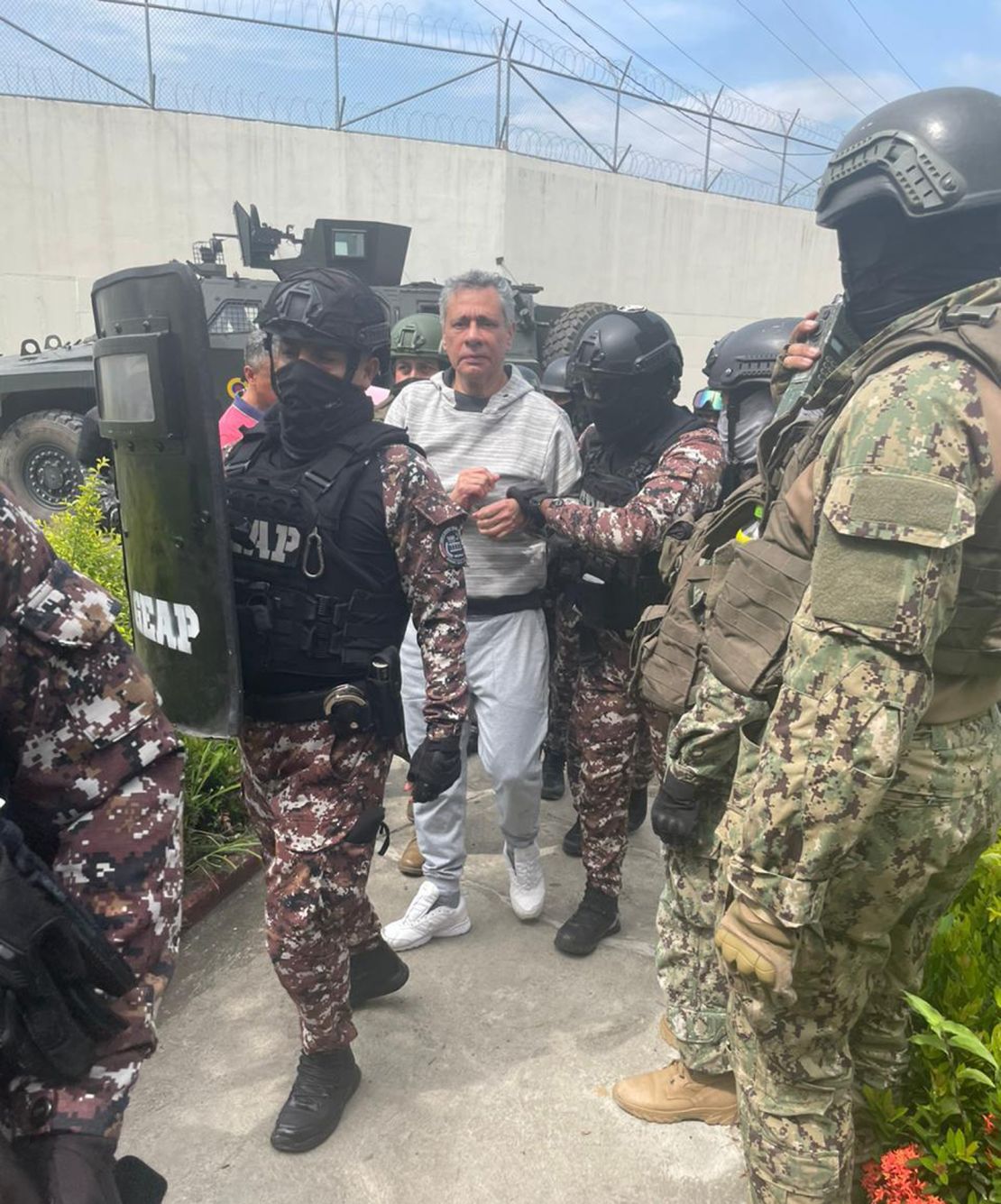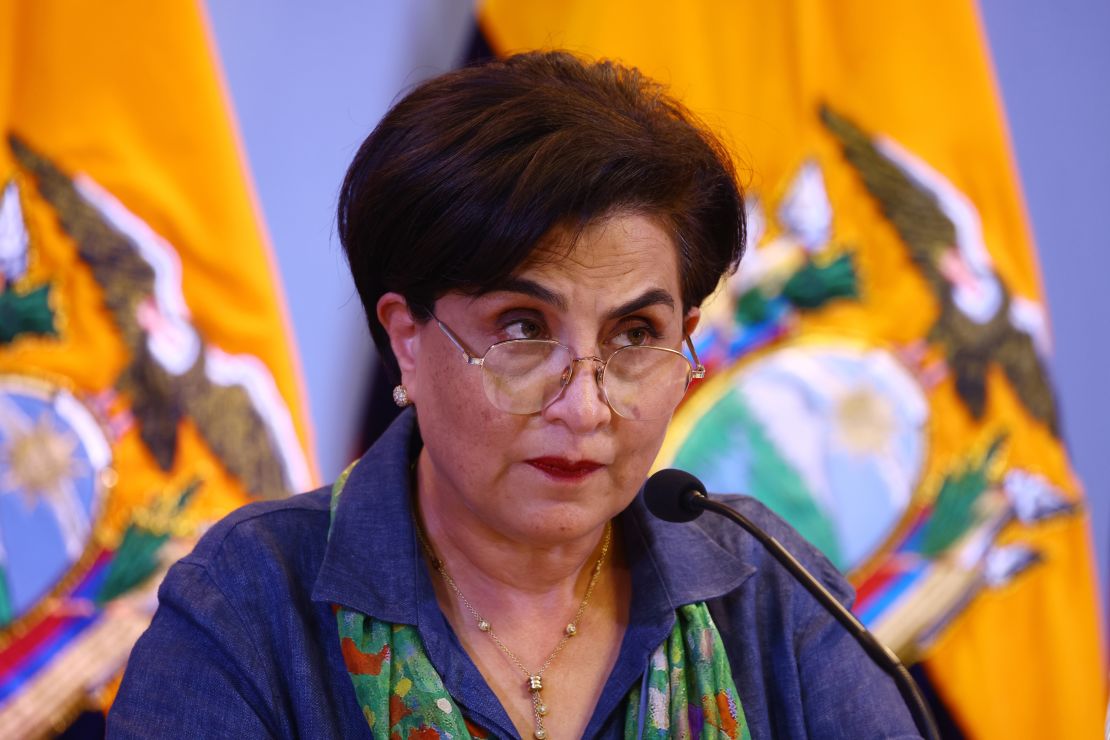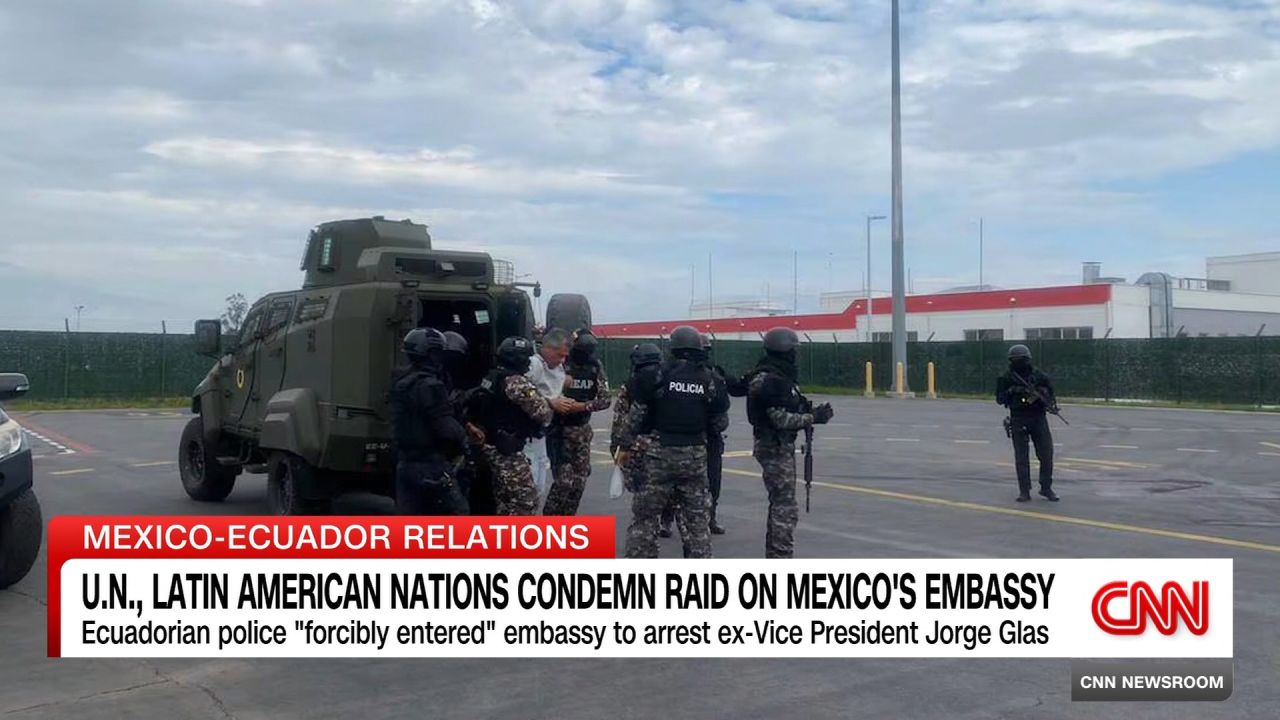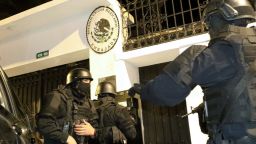Ecuador is facing outrage after storming the Mexican embassy in Quito to arrest former Ecuadorian Vice President Jorge Glas, a controversial figure who had been seeking asylum there.
Mexico said it will file a case against Ecuador at the International Court of Justice on Monday after the late Friday night arrest of Glas prompted Mexican President Andrés Manuel López Obrador to order the immediate suspension of diplomatic ties with Quito.
In a post on X, Obrador called the act a “flagrant violation of international law and the sovereignty of Mexico.”
The breach of diplomatic convention has sent shockwaves through the region, with Latin American leaders from across the political spectrum condemning the incident.
Under diplomatic norms, embassies are considered protected spaces.
It marks the culmination of a series of diplomatic provocations between Mexico and Ecuador this week.
Glas, 54, has since been transferred to a maximum-security prison in Guayaquil known as La Roca, Ecuadorean authorities said.
His lawyers have filed an appeal for his release on the grounds of unlawful detention, according to court records, though it is unclear when a judge may rule on the request.
The Ecuadorian Prosecutor’s Office declined to comment on the appeal presented by Glas’ defense.
The diplomatic staff of the Mexican embassy in Quito and their families arrived in Mexico City on Sunday after leaving Ecuador, according to the Mexican Foreign Ministry.
The group of 18 people boarded a commercial flight earlier Sunday. Officials from what Mexico called “friendly and allied countries” accompanied them to the airport in Quito.
“We thank the ambassadors of Germany, Panama, Cuba, Honduras, the president of the Ecuador-Mexico Chamber and the rest of the diplomatic staff for their solidarity with the people of Mexico!” the Mexican Foreign Ministry said.
Mexico added that its embassy in Ecuador will remain closed indefinitely, as will its consular services. Mexicans in Ecuador can still get help through a communications system for nationals abroad and from the Mexican embassies in Chile, Colombia and Peru.

Diplomatic spat
Glas, who has been convicted twice on corruption charges, served under leftist ex-President Rafael Correa between 2013 and 2017.
He has been accused by Ecuadorian authorities of embezzling government funds meant to help rebuild after a devastating 2016 earthquake. Glas’ defense has rejected the allegations and he says he is the subject of political persecution.
Following his arrest, a host of Latin American countries – including regional giants Brazil and Argentina – rallied around Mexico to condemn Ecuador. Several pointed to a violation of the Vienna Convention on Diplomatic Relations, the international treaty that defines a framework for relations between countries.
Some also pointed to a breach of Glas’s right to asylum. Nicaragua has joined Mexico in severing diplomatic ties with Ecuador.
The right-wing Argentinian government called for “full observance of the provisions of that international instrument as well as the obligations arising from the Vienna Convention on Diplomatic Relations.”

Left-wing Colombian President Gustavo Petro said Glas’s right to asylum was “barbarically violated,” while Honduras President Xiomara Castro said the assault on the embassy “constitutes an intolerable act for the international community.”
United Nations?Secretary-General?António Guterres was “alarmed” by the raid, his spokesperson said.
Stéphane Dujarric, spokesperson for the?Secretary-General, said Guterres reaffirmed “the cardinal principle of the inviolability of diplomatic and consular premises and personnel.”
Video from the scene of Glas’ arrest last Friday showed police officers massing around the Mexican embassy, some armed.

At a news conference Saturday, Ecuadorian Foreign Minister Gabriela Sommerfeld defended the raid, saying the action was taken “in the face of a real risk of imminent escape.”
Sommerfeld also accused Mexico of violating the principle of non-intervention by letting Glas stay in the?embassy?and evade an order to appear regularly before authorities in a corruption probe.
She dismissed Mexico’s claim that Glas was being politically prosecuted, saying: “For Ecuador, no criminal can be considered a politically persecuted person when he has been convicted with an enforceable sentence and with an arrest warrant issued by the judicial authorities.”
This story has been updated with additional developments.
Additional reporting by CNN’s Fidel Gutiérrez, David Shortell, Marlon Sorto, Ana María Ca?izares and Heather Chen.



